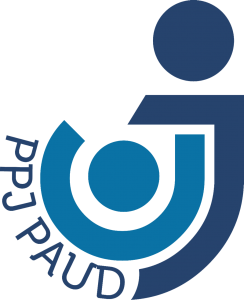The effect of Islamic family education on early childhood prophetic character
DOI:
https://doi.org/10.26555/jecce.v4i1.3891Keywords:
Early Childhood, Islamic Education, Prophetic CharacterAbstract
Islamic education in the family is an effort to form a professional personality. Nasyiatul Aisyiyah (Nasyiah) family was chosen to be the research subject because it has a mission to strengthen family resilience. For Nasyiah, family resilience is the main foundation to form the prophetic character of Early Childhood. The purpose of the study is to analyze the effect of the implementation of Islamic education in the family on the prophetic character of early childhood. This research method uses quantitative research. The data collection process used a google form questionnaire addressed to Nasyiatul Aisyiyah cadres in the Special Region of Yogyakarta (DIY) with a total of 113 subjects. The data were analyzed using SPSS 26 and used simple linear regression. The results of this study indicate that the implementation of Islamic education has a positive effect on prophetic characters with a total effect of 42.1%. The novelty of the research lies in the prophetic character of children which has never been discussed before in the early childhood care process in the Nasyiatul Aisyiyah environment. This study provides literacy to the community that increasing the implementation of Islamic education in the family will affect the improvement of prophetic character in early childhood. Early childhood who already have a prophetic character will improve leadership in the future.
References
Baharudin, H. (2016). Pendidikan Anak Perspektif Keluarga : Telaah Epistimologis. Pedagogik; Jurnal Pendidikan, Vol. 3, No. 2 Januari-Juni 2016.
Edi, W. (2015). Peran Oragtua Dalam Meningkatkan Pendidikan Karakter Anak Usia Dini Dalam Keluarga. PG PAUD-Trunojoyo, 2(1), 1–9.
Friere, P. (2008). Pendidikan Sebagai Proses. Pustaka Pelajar.
Fuadi, H. (2016). Aktualisasi nilai-nilai profetik Kuntowijoyo di dalam pendidikan (Studi Kasus di SMP Birrul Walidain Muhammadiyah Sragen). Tajdida: Jurnal Pemikiran Dan Gerakan Muhammadiyah, 5(2), 18–30.
Ilyas, Y. (2015). Tajdid Muhammadiyah dalam Persoalan Perempuan. Pandangan Muhammadiyah Terhadap Perempuanâ€, Seminar Nasional Jelang Muktamar Muhammadiyah Ke-47, Audotorium Kantor Pimpinan Pusat Muhammadiyah, Jln Cik Ditiro 23 Yogyakarta, 4 April 2015.
Indrawan, I. (2016). Pendidikan Karakter dalam Perspektif Pendidikan Islam. Al-Afkar : Jurnal Keislaman & Peradaban, 2(1), 5–19. https://doi.org/10.28944/afkar.v2i1.90
Iqbal, M. (2015). Diskursus Gender Dalam Pendidikan Islam. Analisis: Jurnal Studi Keislaman, 15(1), 99–119. https://doi.org/10.24042/ajsk.v15i1.715
Indrawan, I. (2016). Pendidikan Karakter dalam Perspektif Pendidikan Islam. Al-Afkar : Jurnal Keislaman & Peradaban, 2(1), 5–19. https://doi.org/10.28944/afkar.v2i1.90
Masduki, M. (2017). Pendidikan profetik: Mengenal gagasan ilmu sosial profetik kuntowijoyo. TOLERANSI: Media Ilmiah Komunikasi Umat Beragama, 9(1), 1–22. https://doi.org/10.24014/TRS.V9I1.4320
Mu’arif. (2012). Modernais Pendidikan Islam (B. Rasikh (ed.); Satu). Gramasurya.
Nata, A. (2016). Islam Rahmatan Lil Alamin Sebagai Model Pendidikan Islam Memasuki Asean Community. Makalah Disampaikan Pada Acara Kuliah Tamu Jurusan Pendidikan Agama Islam Fakultas Ilmu Tarbiyah Dan Keguruan UIN Maulana Malik Ibrahim Malang Senin, 7 Maret 2016 Di Aula Lt. 5 Gedung Rektorat (Ir. Soekarno). @ 2016.
Pratiwi. (2020). Implementasi Pendidikan Profetik Dalam Membentuk Karakter Peserta Didik di Sekolah Dasar Al-Baitul Amien Jember. EDUCARE: Journal of Primary Education Vol 1, No 3, Desember 2020, Pp. 243-264.
Puniman, A., & Kadarisman, K. (2017). Pendidikan Anak Dalam Perspektif Islam. Alpen: Jurnal Pendidikan Dasar, 1(1), 1–9. https://doi.org/10.24929/alpen.v1i1.1
Rachman, E. (2015). Mengoptimalkan Kecerdasan Anak. Gramedia Pustaka.
Rosyadi, K. (2009). Pendidikan Profetik. Pustaka Pelajar.
Setiani, R. E. (2018). Pendidikan Anak Dalam Keluarga. YINYANG: Jurnal Studi Islam, Gender Dan Anak. https://doi.org/10.24090/yinyang.v13i1.2018.pp105-116
Sugiyono, D. (2018). Metode penelitian kuatintatif , kualitatif dan R & D / Sugiyono. In Bandung: Alfabeta (Vol. 15, Issue 2010).
Syadzili, M. F. R. (2020). Implementasi Profetik Prenatal dan PAUD. Al Hikmah: Indonesian Journal Of Early Childhood Islamic Education Issn (P): 2550-2200, Issn (E): 2550-1100, Vol. 4 (1), 2020, Pp. 10 - 21, IV(1).
Syamsiyatun, S. (2007). Muslim Women’s Politics in Advancing Their Gender Interests: A Case-Study of Nasyiatul Aisyiyah in Indonesia New Order Era. Al-Jami’ah: Journal of Islamic Studies. https://doi.org/10.14421/ajis.2007.451.57-89
Syarif. (2014). Pendidikan Profetik Dalam Membentuk Bangsa Religius. Tadris : Jurnal Pendidikan Islam, 9(1), 1–16. https://doi.org/https://doi.org/10.19105/tjpi.v9i1.397
Taubah, M. (2015). Pendidikan Anak Dalam Keluarga Perspektif Islam. Jurnal Pendidikan Agama Islam, 3(1), 1. https://doi.org/https://doi.org/10.15642/jpai.2015.3.1.109-136
Wati, D. C. (2017). Penanaman Nilai-nilai Religius di Sekolah Dasar untuk Penguatan Jiwa Profetik Siswa. Prosiding Konferensi Nasional Kewarganegaraan III.
Wilis, W. (2020). Penerapan Konsep Mubadalah Dalam Pola Pengasuhan Anak. IJouGS: Indonesian Journal of Gender Studies, 1(1), 1–16.
Downloads
Published
How to Cite
Issue
Section
License
Copyright (c) 2021 syahdara anisa makruf

This work is licensed under a Creative Commons Attribution-ShareAlike 4.0 International License.
Authors who publish with this journal agree to the following terms:
- Authors retain copyright and grant the journal right of first publication with the work simultaneously licensed under a Creative Commons Attribution-ShareAlike 4.0 International License that allows others to share the work with an acknowledgement of the works authorship and initial publication in this journal.
- Authors are able to enter into separate, additional contractual arrangements for the non-exclusive distribution of the journals published version of the work (e.g., post it to an institutional repository or publish it in a book), with an acknowledgement of its initial publication in this journal.
- Authors are permitted and encouraged to post their work online (e.g., in institutional repositories or on their website) prior to and during the submission process, as it can lead to productive exchanges, as well as earlier and greater citation of published work (See The Effect of Open Access).














